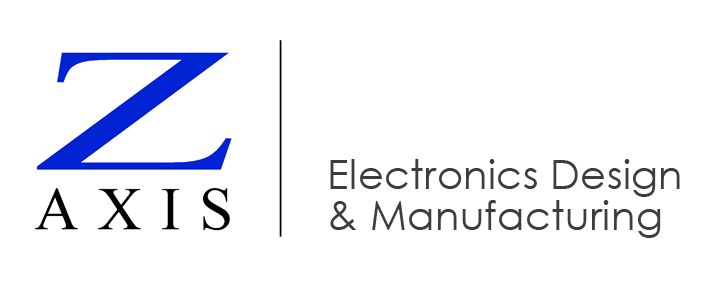Many manufacturers have tried working with startups and lost money in the process. Today, they won’t even talk to inventors or entrepreneurs. Z-AXIS is different in that we’re willing to work with startups and have enjoyed successes with them. Each year, we typically work with 3 or 4 businesses that are still working on their initial product. Some of these startups are brand-new while others are a few years old.
Risks and Rewards with Startups
Startups require considerable support, and they usually have plenty of questions. Because there’s a lot they don’t know, Z-AXIS takes the time to teach them. Sometimes, startups have developed an electronics design with parts from Alibaba, a source we wouldn’t recommend because the parts you buy there might not be available for re-order. There are also inventors who don’t want to stop inventing, and this keeps them from getting a product to electronic contract manufacturing.
Yet, there are also benefits to working with startups. For example, Z-AXIS gets to work on many exciting projects and with a host of different technologies. We enjoy working with risk-takers who don’t settle for playing it safe, and some of the projects we’ve worked on have done quite well. Z-AXIS is selective, however, and won’t work with just anyone who needs electronics design and contract manufacturing.
Successful Startups vs. Five Reasons to Say “No”
When deciding whether to work with a startup, Z-AXIS considers whether the potential customer has a strong foundation. Referrals from FuzeHub and Rev: Ithaca have an edge because we know these early-stage companies have been vetted already. Whether it’s through formal instruction or expert assistance, these startups are in a better position to achieve their goals.
Why won’t Z-AXIS work with some startups? There are five reasons why we’ll decline an opportunity.
1. | We don’t feel they have a product or idea that will sell. |
2. | We don’t feel they know how to market and sell their product. |
3. | They don’t have enough funding to develop a product. |
4. | They don’t understand the business side of things. |
5. | Their product does not align with our company’s ethics. |
Let’s take a look at each of these five reasons.
#1 We don’t feel they have a product idea that will sell.
Startups need product ideas that are technically sound and sales projections that are realistic. Products that won’t work or that would violate scientific principles aren’t worth developing. Devices or equipment that regulatory agencies will reject are problematic, and unrealistic sales forecasts are a warning sign. If a startup proposes something (like a smartphone) that already exists and is selling well, we’ll probably pass.
#2 We don’t feel they know how to market and sell their product.
Startups need to know their ideal buyer and the size of the potential market. It’s also important to secure licensing, if necessary. For example, when a startup told us that using intellectual property (IP) from a major multinational corporation wouldn’t be an issue, we noted the lack of a licensing agreement. Startups also need to know how they’ll bring a product to market through direct sales or distribution.
#3 They don’t have enough funding to develop a product.
Z-AXIS has a charge-out rate for electronic design. If a startup doesn’t have enough funding to develop a product, it might not be worth getting started with a project. For example, sometimes a company has just enough money for basic electronics design but not for a full circuit design. Without the full design, however, electronic contract manufacturing can’t begin.
#4 They don’t understand the business side of things.
Costs, pricing, IP, and licensing fees are too important to ignore. Because many of the startups we work with need considerable assistance, we look for ones that are teachable. Z-AXIS owner Michael Allen has 22 patents in his name, but only one of them is owned by Z-AXIS. That’s because the other 21 patents are owned by our customers – and there are no licensing fees. Startups also like working with us because they own the source code, Gerber files, and bill of materials (BOM).
#5 Their product does not align with our ethics.
Finally, Z-AXIS won’t work on product ideas that don’t align with our ethics. What we will work on, however, are some of the projects that come to us from Rev:Ithaca, a business incubator where we sometimes participate in panel discussions. Z-AXIS will also work with some of the startups that are referred to use by FuzeHub’s Manufacturer Solutions Program.
Z-AXIS does work with startups, but we’re selective about the 3 to 4 companies each year that we work with. If you think you have what it takes, contact us.

